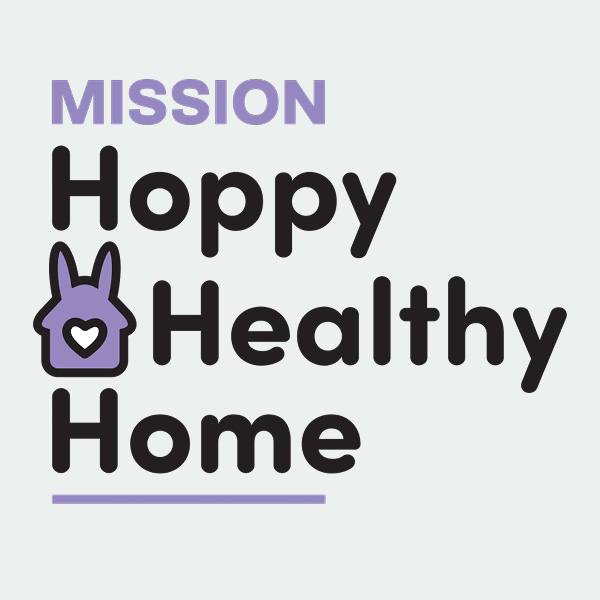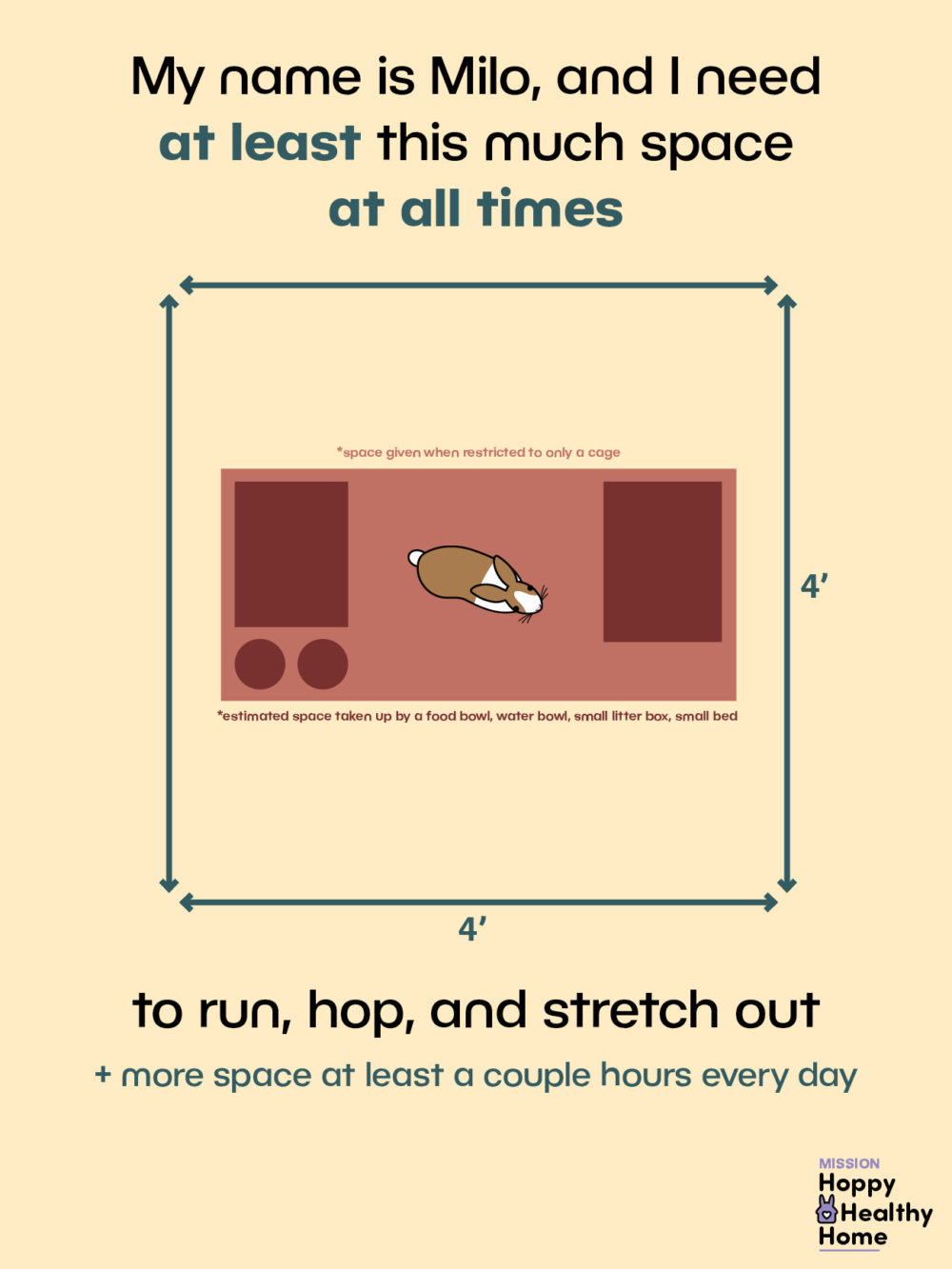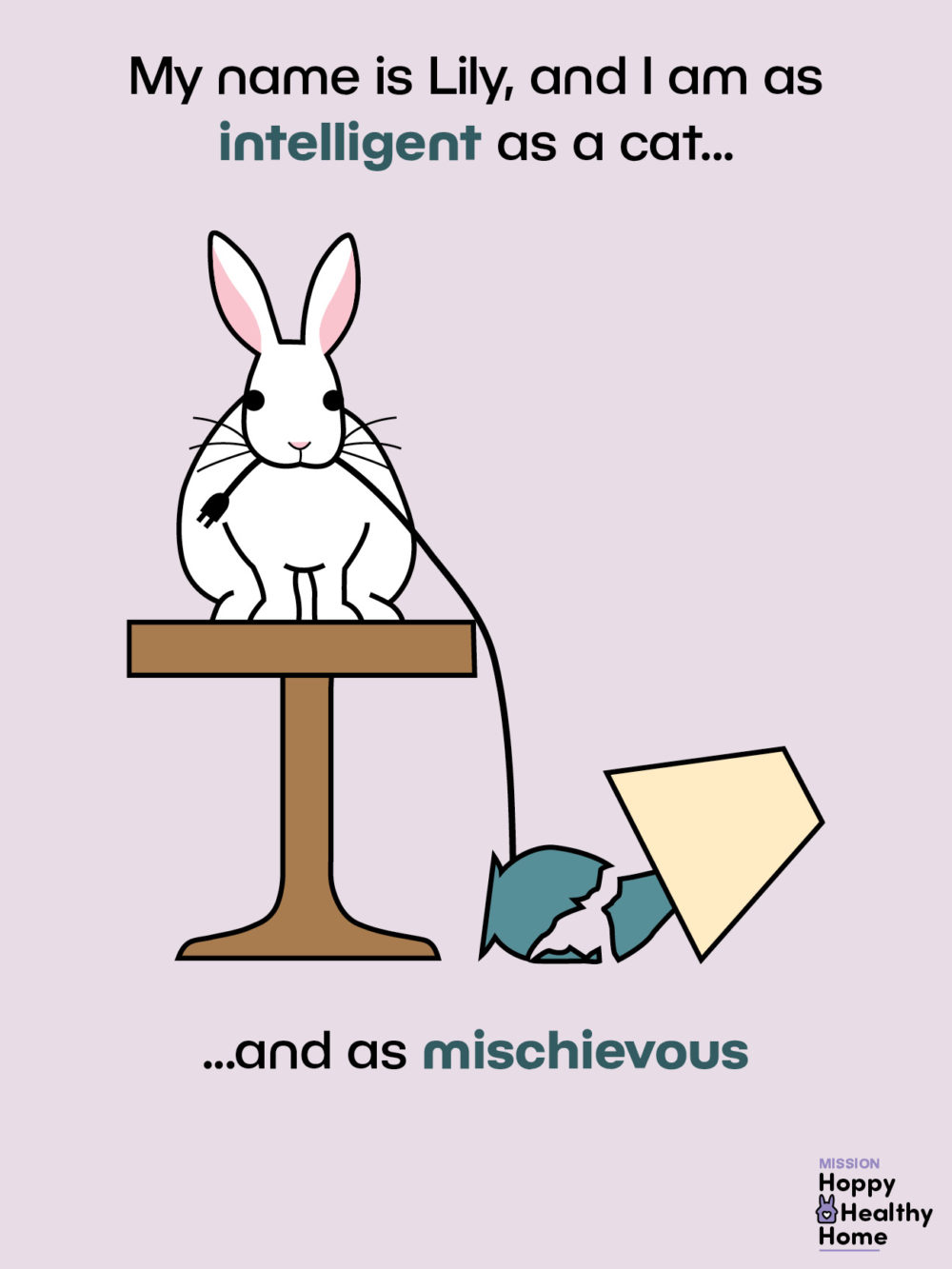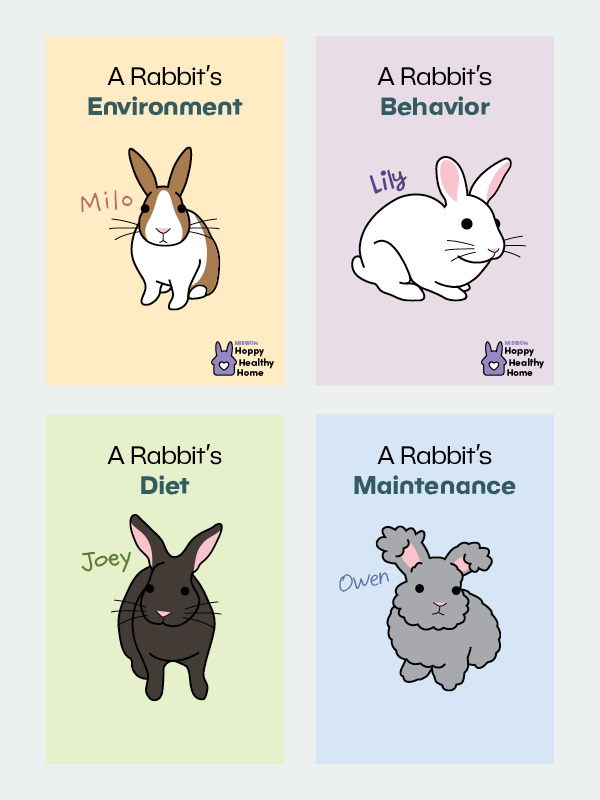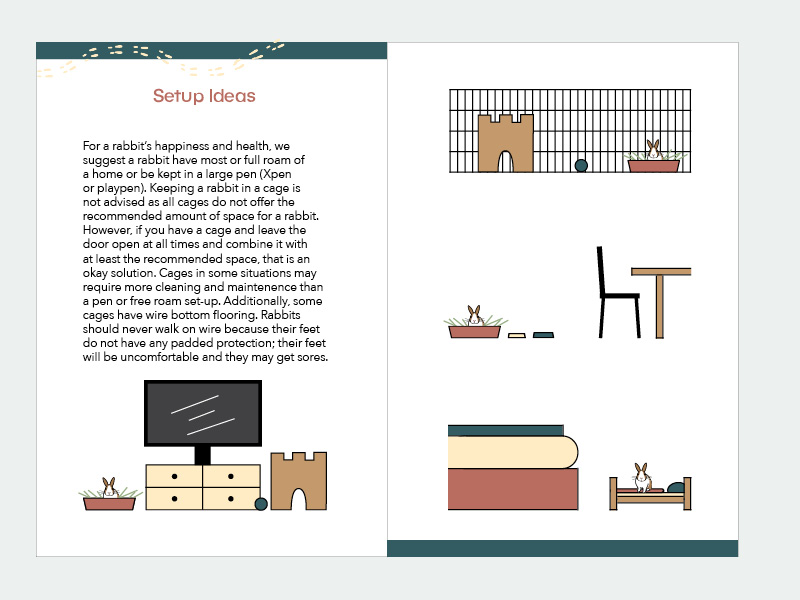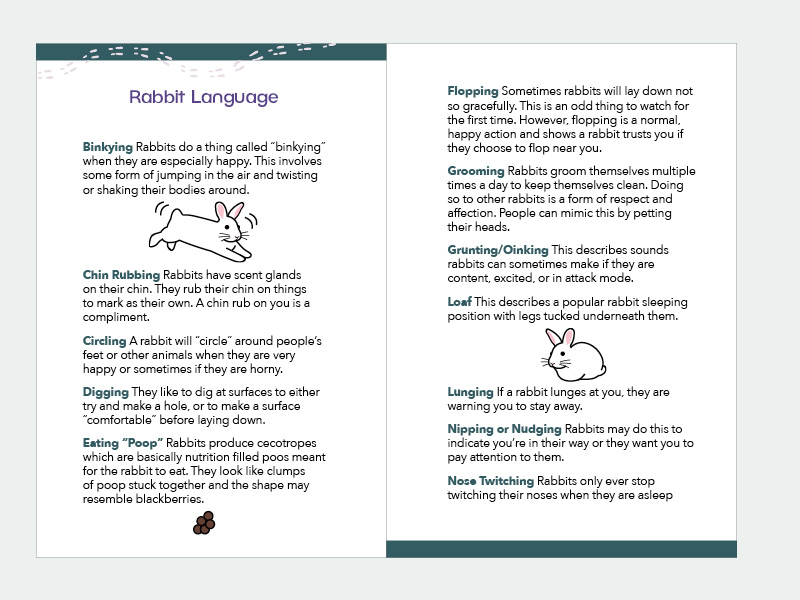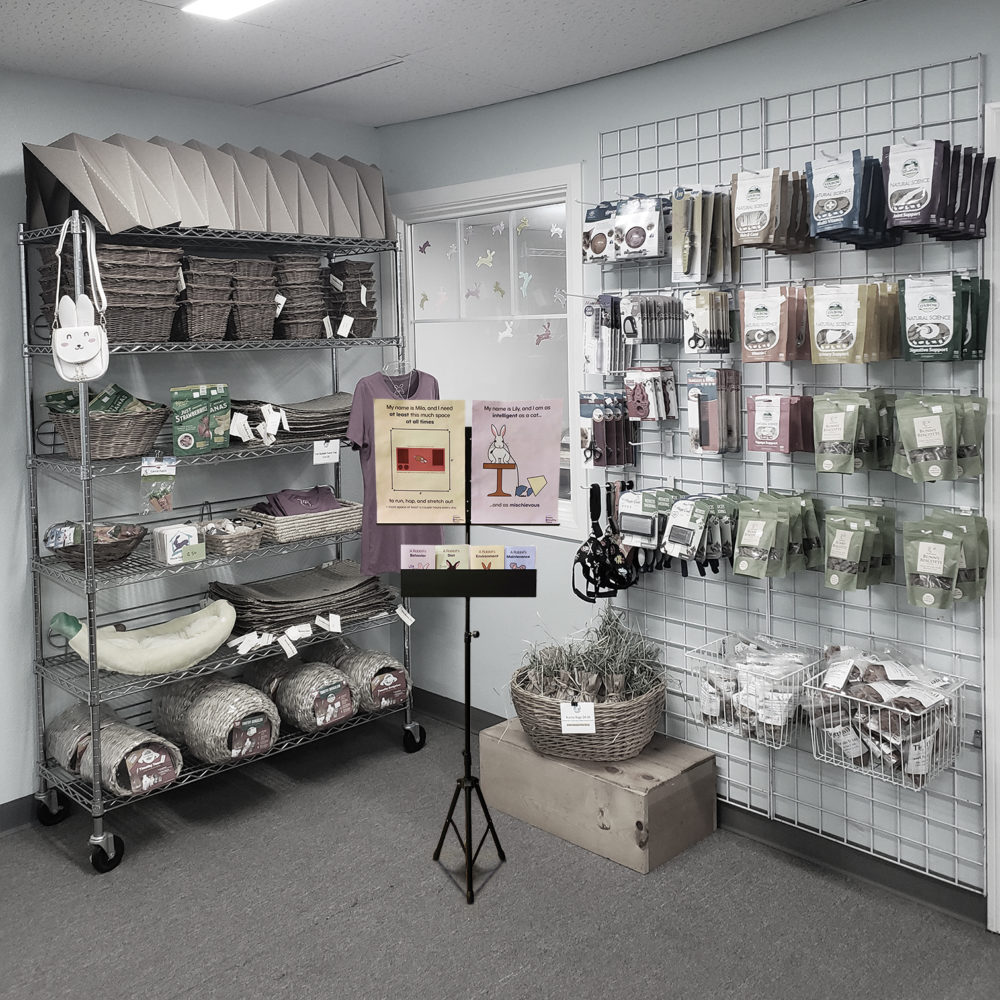Mission Hoppy Healthy Home
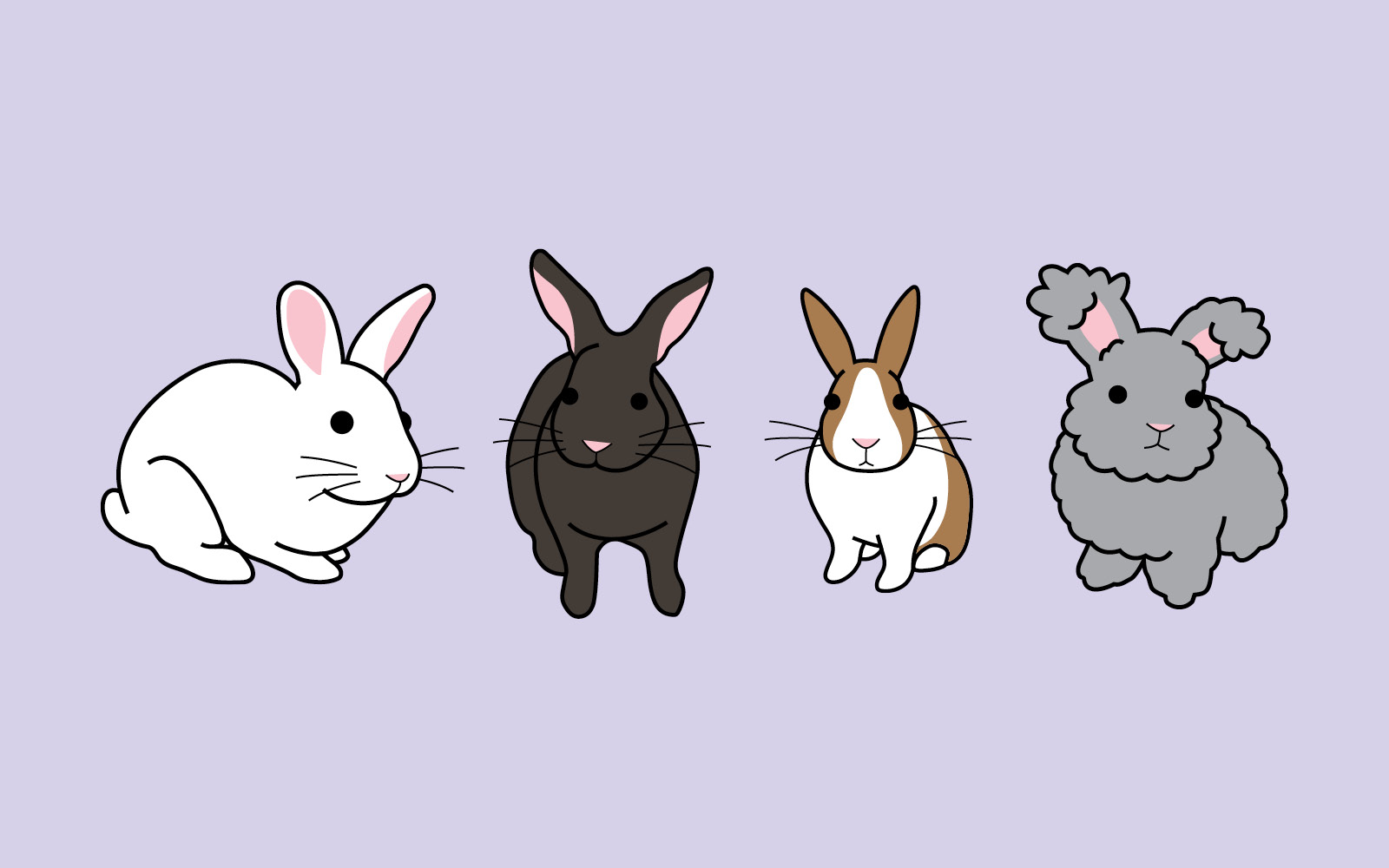
The Problem
Future rabbit owners and current rabbit owners often do not have accurate knowledge of the needs and behaviors of pet rabbits and are unaware of what they need to prepare for as owners. This frequently leads to pet rabbit abuse/mistreatment and/or abandonment.
How can young adults and families be educated about the needs and behaviors of rabbits to ensure a healthy, loving environment and to prevent rabbits from being abandoned and/or going to shelters and rescues?
Target Audience
Young adults and families are the target audience of Mission Hoppy Healthy Home. This is due to the fact that they are the most likely to become first time rabbit owners and need the most guidance.
Research
My research included a casual coversation with Ohio House Rabbit Rescue, an in-depth survey, and observations.
Rabbits are the third most abandoned pet after dogs and cats. Ohio House Rabbit Rescue firmly believed that the most common reasons for rabbit being abandoned or given up had to do with misconceptions owners had when getting rabbits or involved misinformation given to owners by pet stores or breeders (where they may have gotten
the rabbits).
I conducted a survey mostly made up of extended response questions to gain thorough insights. I wanted to test people’s knowledge and see what misinformation and misconceptions were most common. I asked questions on what people like and dislike about owning a rabbit, what they believe a rabbit’s environment should look like, what supplies they need, and opinions on pet stores. I had a total of 52 respondents with 34 having experience with owning a pet rabbit.
The responses to my survey included contradictions. Some respondents with experience with rabbits carried the same information as me. Some respondents with rabbit experience did not seem to know how much space was healthy for a rabbit or certain foods that may be bad for rabbits. For example, 45% of respondents with experience owning a rabbit mentioned rabbits needing cages. 4 individuals admitting they converted to a free roam home environment after learning negative impacts of cages.
I later did a quick investigation to see how prevalent harmful foods in pet stores were. I visited 4 different pet stores and only one strictly had healthy foods for rabbits. These yogurt treats found in most pet stores include lots of sugar and some dairy – both of which can have harmful effects on a rabbit’s digestive system.
Design Process + Testing
I grouped information from my survey into 4 categories: Environment, Behavior, Diet, and Maintenance. All common misinformation/misconceptions found in my survey responses were able to be categorized in these groups.
I tested Mission Hoppy Healthy Home’s message and designs with participants in my survey that do not have experience owning a rabbit, but plan on getting one in the future. The results showed positive feelings towards the style of the designs. Owen was a favorite of the participants, so developing his story would be my next step.
Design Solution
With the insights and data I gathered, I created Mission Hoppy Healthy Home. Mission Hoppy Healthy Home was made to address all the misinformation and misconceptions of rabbit needs and behavior out in today’s world and put out accurate, helpful information for future rabbit owners and current rabbit owners. By doing this, Mission Hoppy Healthy Home hopes to help many domestic rabbits live out their lives in healthy, loving homes.
Mission Hoppy Healthy Home is starting their journey by creating a series of informational posters and booklets.The topics of misinformation being addressed in these are a rabbit’s environment, behavior, diet, and maintenance.
These posters and booklets would be put into a display and be placed in rescues and pet stores. There would be plenty of booklets to pick up in whatever topic a future or current rabbit owner would like to know about. Even if future rabbit owners do not plan on getting a rabbit from a rescue or pet store, as shown in my survey, rabbit owners are still likely to get supplies from pet stores.
